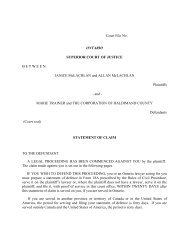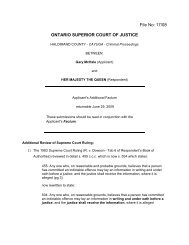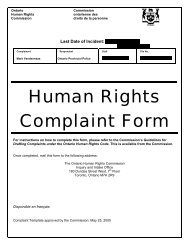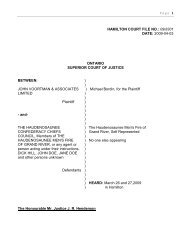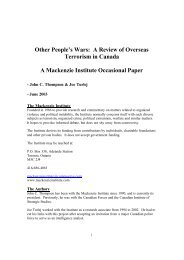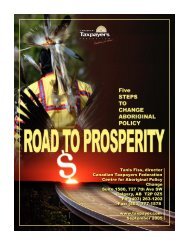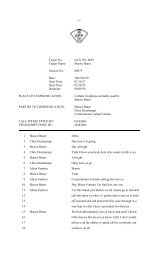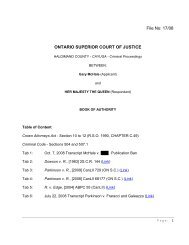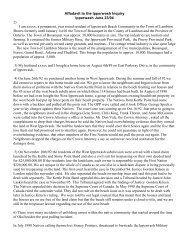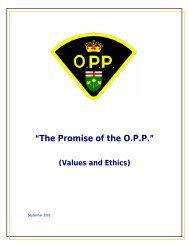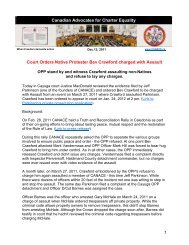1-NoelvR-2001nbca80 - Caledonia Wake Up Call
1-NoelvR-2001nbca80 - Caledonia Wake Up Call
1-NoelvR-2001nbca80 - Caledonia Wake Up Call
- No tags were found...
Create successful ePaper yourself
Turn your PDF publications into a flip-book with our unique Google optimized e-Paper software.
CanLII - 2001 NBCA 80 (CanLII)...The argument that was made by the appellant in relation to this ground ofappeal was that no act of the appellant "induced" any conduct of thecomplainant. She went immediately to the police and thereafter theconduct was as suggested by the police. In particular, the parting withthe money orders was not induced by the appellant.Secondly, it was said that an amount of money was specified in theindictment, though that is a particularization of the terms of thesection, and that the money orders used were not genuine money orders andso the terms of the indictment in relation to the payment of money werenot proven.In response to these arguments counsel for the Crown said this: First,that it was money that was paid; Second, that the indictment could beamended with respect to whether it was money or not; Third, that in anyevent it was an attempt to induce the payment of that amount of money.In relation to the attempt point, Crown Counsel argued that there ispower to convict of an attempt to commit the offence charged without anyamendment to the indictment, and, as a second aspect of the argumentunder attempt, that there was the power to amend the indictment tospecify the attempt and so to correspond to the evidence.The section of the Criminal Code on extortion, s. 346 is one of the veryfew sections in the Code which makes an attempt to commit the offence anoffence in itself. The attempt is itself specified in the section. Otherexamples are uttering in s. 368 and a way of committing assault in s. 261(1)(b).Counsel for the Crown referred to sections which he suggested the Courtmight consider relevant to his arguments. He referred particularly to s.24(1), s. 660, s. 662(1), s. 686(1)(b)(i), and s. 683(l)(g). My brotherMr. Justice Toy referred also to s. 463(b).In my opinion, it is not necessary to set out and analyze the relevanceof those sections, though they all indicate a pattern which permits someprocedural flexibility in the interests of justice so long as there is noprejudice to the accused.In this case I rely on s. 683(1)(g). It is a comparatively new sectionand there is no reason to trammel it with pre-existing jurisprudence thatit was intended to overcome. It specifically gives power to the Court ofAppeal to amend an indictment unless the Court is of the opinion that theaccused has been misled or prejudiced in his defence or in his appeal.The specific amendment that I would make to the indictment is that Iwould add the words "attempt to" before "induce". In my opinion, in everycriminal charge the accused must understand that not only the offencespecified in the count requires a defence but any attempt to commit theoffence as specified in the charge, if it is proven to have been coupledwith acts to carry out the commission of the offence, puts the accused inJeopardy on the very same count in relation to a conviction for anattempt.In my opinion, in those circumstances it cannot be said that there wasany misleading of the appellant or any prejudice to him in his defencethrough making the amendment that I have set out to the indictment.[13] Returning to the case under appeal, the appellant inhttp://www.canlii.org/eliisa/highlight.do?language=en&s...ml&path=/en/nb/nbca/doc/2001/<strong>2001nbca80</strong>/<strong>2001nbca80</strong>.html (6 of 8)16/06/2008 12:58:17 AM



